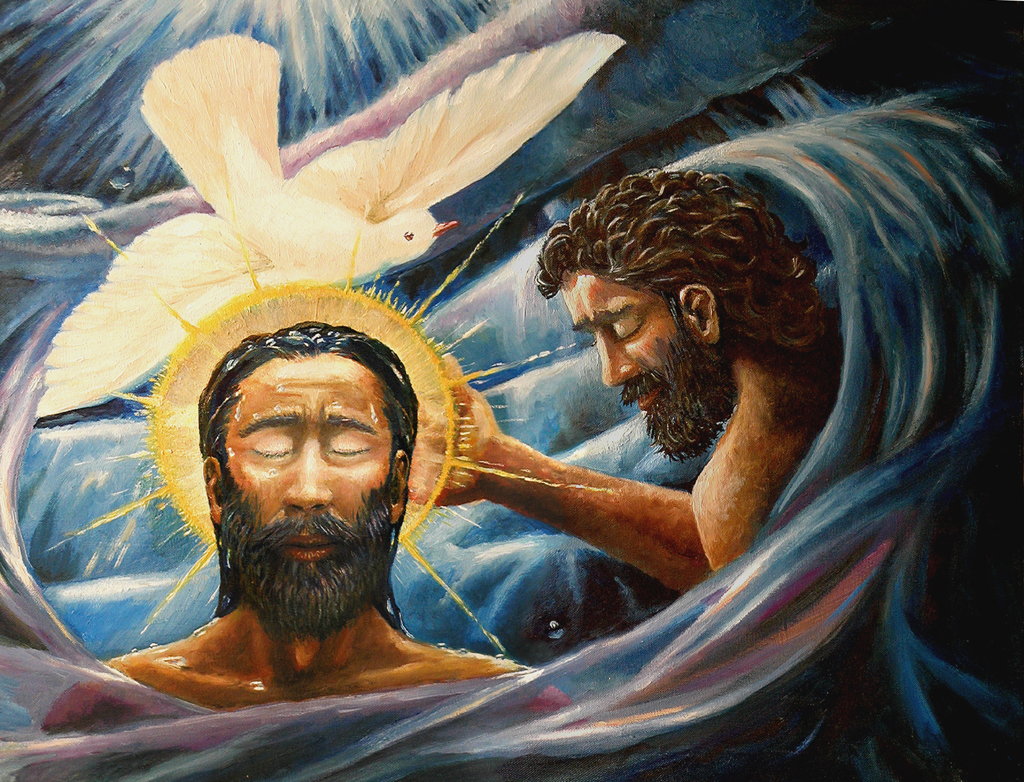What wonderful words we have in today’s Gospel to close out the Christmas season: “You are my beloved Son; with you I am well-pleased.”
We have come a long way since December the 25th. Jesus, the Son of God, has become the son of Mary, and has consecrated the world through his most loving presence. The Second Person of the Holy Trinity has taken on flesh and become one like us in all things but sin. He took that flesh as the lowliest of all: as a baby born to a poor young family in the tiniest, poorest region of a small nation.
But during his Epiphany, which we have been celebrating ever since last Sunday, we saw the importance of this Emmanuel, God with us. Magi came from the East to give him symbolic gifts: gold for a king, frankincense for the High Priest, and myrrh for his burial. Today, the Epiphany continues with the second traditional reading of the Epiphany: the Baptism of Jesus. Today, we fast-forward to Jesus as a grown man, ready to begin his ministry, and doing that by taking part in Saint John the Baptist’s baptism, a baptism of repentance for the forgiveness of sins. Obviously, Jesus didn’t need to be forgiven of his sins, because he was like us in all things but sin. So Jesus’ taking part in that baptism manifests himself as One who has come to be with sinners, to take on their sinfulness, and to sanctify those waters of baptism so that they can wipe away our sins.
And here’s a wonderful thing: even though the Christmas season officially ends today, we continue to celebrate it in some ways, all the way up to Candlemas day, the Presentation of the Lord, February the 2nd. We see that especially this year, because next week, we get the third traditional reading of the Epiphany, the Wedding Feast at Cana, in which Christ is manifested in his ministry, and the superabundance of wine foreshadows the outpouring of his blood for our salvation.
The secret to our celebration of the Epiphany is that we must be ready to accept the manifestation of Jesus in our own lives. We have to let him be our king and priest, accepting his death for our salvation. We have to celebrate our own baptism, which is only significant because Christ has gone through it first, long before us, sanctifying the waters. We have to let him minister to us as he did at the wedding feast, giving us the very best of food and drink, in great abundance, to nourish us into eternal life.
This is the One with whom the Father was well-pleased; he is the One with whom we are in awe. We are moved to silence before our Christ who came most mercifully to sanctify our way to heaven. That silence can only be appropriately broken by the exclamation of the Father: “You are my beloved Son; with you I am well-pleased!”
